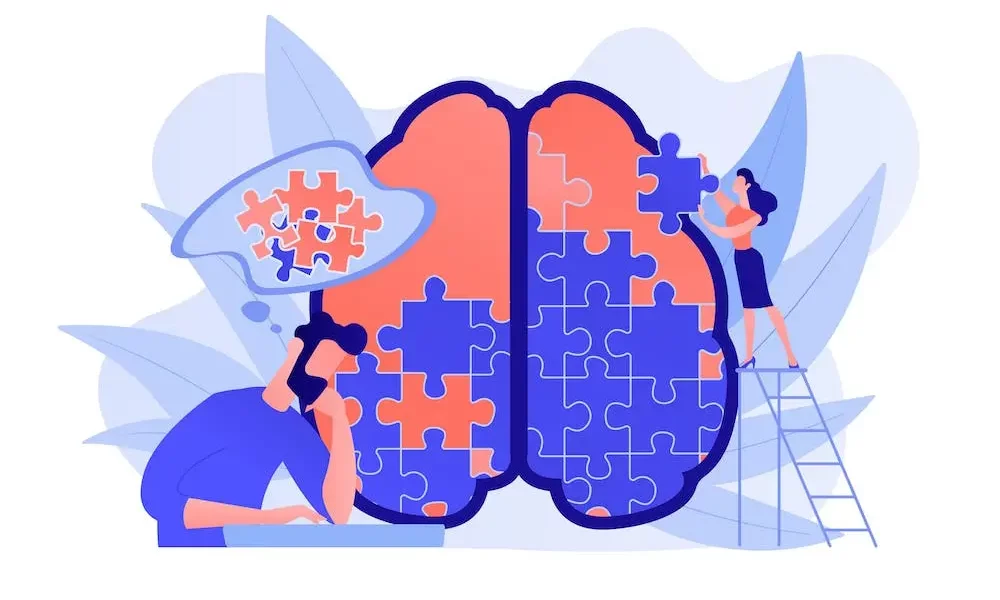Cognitive Behavioral Therapy, also known as CBT, is an evidence-based, non-pharmacological, safe, and effective treatment for practically anyone facing sleep problems.
What is cognitive behavioral therapy for insomnia?
Cognitive behavioral therapy for insomnia is a short, structured therapy that is designed to help find the root causes of insomnia by looking at an individual’s thoughts, behaviors, and feelings (Newsom, 2022).
Structured CBT for insomnia is devised of cognitive, behavioral, and psychoeducational interventions that are used as approaches over a period of six to eight sessions depending on the patient’s needs.
In some cases, only two or three sessions may be needed (Newsom, 2022).
How long has insomnia CBT therapy been used?
CBT for insomnia has been used as far back as 1988 (Pigeon, 2010).
Many principles, including behaviors and thought restructuring, common in CBT and other approaches of therapy, have been in connection with treating insomnia since 1978.
Starting with behavioral conditioning, treatment for insomnia focused on eliminating or initiating certain stimuli associated with sleep.
Restructuring conscious thoughts or hypervigilance and regulation of the sleep cycle were also historically parts of treating insomnia (Pigeon, 2010). CBT therapy for insomnia has since been used to help find ways to initiate and maintain sleep.
How does cognitive behavioral therapy for insomnia work?
In order to find out if CBT for insomnia is right for you, a diagnosis of insomnia will be made. This is done by looking at the medical, mental health, and sleep history of an individual presenting with insomnia-related symptoms.
Often, insomnia is coupled or caused by other untreated or underlying issues such as a psychiatric condition or other medical condition (Pigeon, 2010).
Cognitive behavioral therapy for insomnia works by analyzing thoughts, behaviors, and emotions associated with sleep. Thoughts around sleep are analyzed to see if they are accurate and behaviors are looked at to see if they promote and help to maintain sleep (Newsom, 2022).
Depending on the individual’s needs, assumptions, and behaviors about sleep, the order of each of the three components may vary.
CBT for insomnia can also be coupled with CBT for other disorders such as anxiety, bipolar disorder, depression, and other psychiatric disorders.

How does cognitive behavioral therapy help insomnia?
Cognitive behavioral therapy is used to help individuals with insomnia by finding underlying thoughts and behaviors that may be contributing to poor sleep.
CBT for insomnia assesses for proper sleep hygiene and implements therapy techniques such as creating a bedtime routine and using sleep restriction and stimulus control (Newsom, 2022).
These techniques are some of the approaches used to help individuals who have developed poor sleep habits.
Thought restructuring or reframing may be used for various anxiety disorders such as generalized anxiety and PTSD for individuals who have trouble sleeping due to intrusive thoughts and hypervigilance.
Common Cognitive Behavioral Therapy Techniques for Insomnia
There are several therapy techniques that can be used depending on the nature of an individual’s insomnia. The following are some of the most common techniques used for cognitive behavioral therapy and insomnia.
- Breathing Exercises are used as a part of relaxation combining breathing re-training and taking slow calculated deep breaths to help decrease heart rate. Breathing exercises are helpful to reduce feelings of anxiety, anger, and depression (Newsom, 2022).
- Progressive Muscle Relaxation involves purposefully tensing muscle groups, one at a time, and then relaxing them. This can simulate the physical feeling of relaxation in comparison to tension.
- Thought Restructuring works to break harmful thoughts that lead to worry that may ultimately result in insomnia. Restructuring thoughts break the habit and challenges individuals to change incorrect assumptions about sleep possibly related to trauma or anxiety.
- Sleep Diary is used to record sleep and wake times as well as how many times a person woke up and for how long during the night. The total amount of sleep, the time it takes to fall asleep, and if they wake up before their alarm among other things are recorded as a way of helping to assess poor sleep habits.
- Stimulus Control involves changing associations related to sleep such as wakefulness. It can include eliminating television or phone time before bed and creating a mindset that the bed is used for sleep and sex only.
- Psychoeducation and Homework work to help teach individuals about proper sleep hygiene and other aspects of life that may impact sleep such as diet and exercise. Homework is used so patients work outside of sessions to further their goals.

What effects can be achieved with CBT therapy for insomnia?
CBT therapy for insomnia is made up of techniques that are designed to combat underlying negative or incorrect assumptions and poor sleep behaviors. These techniques can help achieve a proper relationship and healthy associations with sleep.
It can have positive effects such as teaching coping mechanisms like a healthy diet and exercise that help promote relaxation and physical wellness. Using CBT for insomnia can also promote active coping with problems (CBT, 2019).
Who can benefit from cognitive behavioral therapy for insomnia?
Anyone who has met some of the criteria for chronic or short-term insomnia has been shown to be able to benefit from cognitive behavioral therapy for insomnia. Some studies have shown that as much as 70-80% of people who have used CBT for insomnia have noticed improvements (Newsom, 2022).
Cognitive behavioral therapy for insomnia vs. pills – which is better and why?
For many people, CBT for insomnia is the first line of defense before using medications. Some research has shown that CBT for insomnia is more effective even for individuals in high risk for insomnia situations such as pregnant women and individuals who suffer from PTSD (Newsom, 2022). Using CBT for insomnia without medications is something people have gathered due to the risks of abusing medications frequently prescribed for insomnia.
Despite this, studies have shown that for individuals who suffer from chronic insomnia, using both CBT for insomnia and medications is proven to help, but is much more effective long term if medication is titrated off during maintenance of CBT (Minkel, 2019).